Education
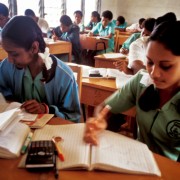 Finance sector development
Finance sector development
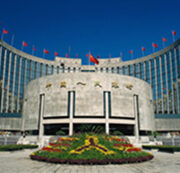 Regional cooperation and integration
Regional cooperation and integration
 Governance and public sector management
Governance and public sector management
 Governance and public sector management
Governance and public sector management
 Governance and public sector management
Governance and public sector management
 Social development and protection
Social development and protection
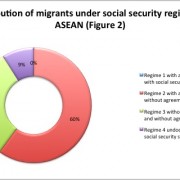 Industry and trade
Industry and trade
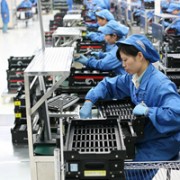 Governance and public sector management
Governance and public sector management
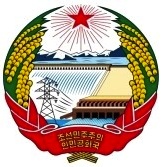 Governance and public sector management
Governance and public sector management
Reforming Asia’s Trade in Services will Help Human Development

The services sector is becoming increasingly important in modern economies. In many of the most developed economies, it can represent two–thirds or even three–quarters of all economic activity. Even in developing economies, the services sector often accounts for a significant share of economic output and employment. International trade in services is also increasing in importance, and has been growing more rapidly than goods trade over recent years. It has also proven to be more resilient to the global financial crisis and resulting trade collapse. It has long been recognized that services trade can influence economic and social outcomes through a variety of mechanisms.
New Challenges for Asia’s Central Banks

The current macroeconomic environment is far more unpredictable and difficult than just a few years ago. Asia’s central banks must evolve in order to adapt to this new landscape. Usually, a central bank’s role is to keep inflation low and stable. But with recent upheavals and financial market turmoil, they have also been charged with maintaining financial stability. To do this, central banks must increasingly work together and coordinate with other authorities. Such coordination—central to the region’s successful navigation of the 2008–2009 global financial crisis— does have implications for central bank objectivity. Central banks do not want to lose their often hard-won independence—an important factor in their operational effectiveness.
Chinese and US health programs in Africa have more in common than you might think

Concerns have been expressed in the Western media that Chinese aid to Africa represents a form of “new colonialism.” However, comparing Chinese and US health programs in Africa suggests that the two have more in common than might be expected. Both countries’ health efforts in the region share similarities in terms of objectives, priorities and challenges. Foreign aid from the PRC and the US is provided not only as development assistance but also as a tool of soft power. Both the PRC and the US shape some of their health efforts to boost friendship and goodwill across Africa. Public opinion polls suggest that both countries are generally viewed positively by Africans.
Myanmar: Rushing in Where Angels Have Feared to Tread

The remarkable, surprising, and extensive reformist policies of the new Republic of the Union of Myanmar have sparked interest throughout the international community. As one of the world’s last bastions of both relative isolation and new opportunities, Myanmar has recently become a magnet to which many are drawn. Governments, international non-profit organizations, and businesses are exploring what they might do in a state marred by intense poverty but possessing abundant natural resources. With a literate and diverse population and a myriad of business opportunities, Myanmar entices with many diverse possibilities for rapid growth and social equity. Hotels are filling up with tourists who now feel more comfortable going to that once exotic land, and embassies may well expand staffs to handle more foreign assistance. Many more international NGOs will join the fifty or so already there, and those that are well established may increase staffs as needs become more visible and access increases.
Is the Euro Dream Doomed?

The crisis in the eurozone is critically important for Asia. At a distinguished speaker seminar at ADBI on 1 December 2011, three eminent European economists examined the crisis and put forward tentative solutions. In this post based on the seminar transcripts, Stefan Collignon outlines his hopes and fears for the single currency. We are in the midst of a very severe crisis. It is not clear that the euro will survive, and if the euro does not survive then the European Union will not survive, and if the EU does not survive than I am not sure how much longer we will have peace in Europe.
Crisis in Europe: Greek Bailout the ‘Mother of all Mistakes’

The crisis in the eurozone is critically important for Asia. At a distinguished speaker seminar at ADBI on 1 December 2011, three eminent European economists examined the crisis and put forward tentative solutions. In a post based on the seminar transcripts, one of the speakers, Charles Wyplosz, identifies some of the mistakes that have been made in the response to the crisis and puts forward three scenarios for its resolution. Since late 2009 the European debt crisis has worsened because of the wrong policy responses by European politicians. Some progress has been made but we are not yet there. We have a historic disaster with global implications on the way and unless a miracle happens I am pretty pessimistic about the future.
Portable Social Security for ASEAN Migrants

The movement of workers within the ASEAN region has been on the rise over the last two decades. In Malaysia, for example, the number of foreign workers grew from less than 250,000 in 1990 to more than 2 million in 2007, about 67% of whom come from ASEAN countries. Singapore, Brunei Darussalam and Thailand have become major labor recipients, while the other ASEAN countries are labor senders (Figure 1). However, the ease of labor flows within ASEAN is not matched by the portability of migrants’ social security benefits. Some hosting countries have nationality conditions or minimum residency requirements that prevent migrants from participating in social security schemes.
From “Assembled in the PRC” to “Made and Designed in the PRC”

On 11 December 2011 the People’s Republic of China (PRC) marked the 10th anniversary of its entry into the World Trade Organization. The PRC’s trade statistics over the past decade have been impressive: despite the fragile global recovery, its exports surged 31% to reach $1.6 trillion in 2010, more than six times the value in 2000. For the first time, the PRC overtook Germany to become the world’s largest exporter. The PRC’s high-tech exports were valued at $490 billion and accounted for 31% of its total exports in 2010. A report from European Commission in 2009 concluded that the PRC had surpassed the United States, Japan and the 27 states of the European Union to emerge as the world’s largest high-tech exporter. According to statistics from the US Department of Commerce, in 2010 the PRC even ran a $94 billion surplus in advanced technology products to the US, an undisputed world leader in technology innovation.
Survival instinct behind the apparently smooth transition in Pyongyang

The death of North Korea’s Marshal Kim Jong Il, the Lodestar of the 21st century, was sudden but not unexpected. The Dear Leader, as he was usually called, suffered a stroke in 2008, and aged significantly after that. Soon after the stroke, Kim Jong Il began to prepare for his eventual demise. In 2010 his third son, 28-year-old Kim Jong Un, was made a four-star general and soon began to be featured by the official media as a young genius of leadership. Simultaneously, Kim Jong Il’s sister and her husband (both in their mid-60s), were promoted to top government positions—obviously on the assumption that they would act as regents for the young and inexperienced dictator should Kim Jong Il die soon.
Development Process Often Boosts Power of Local Bosses
Today, ordinary people in villages and towns in many parts of Asia enjoy more freedom, choice and power than ever before. This is in large part due to the expansion of markets and elections to encompass growing numbers of consumers and citizens, along with the devolution of state power into local hands. Against this backdrop, considerable interest has focused on the role of “local elites” in Asia: “bosses and dynasties” in the Philippines, “goondas” in India, “village emperors and local mandarins” in Viet Nam and PRC. By maintaining monopolistic, authoritarian control over markets, state resources and votes, these local elites are seen to be blocking the emancipatory effects of globalization, democracy and decentralization.


Search
Subscribe / Connect to Asia Pathways
Subjects
- Agriculture and natural resources
- Blog
- Capacity development
- Climate change
- Economics
- Education
- Energy
- Environment
- Finance sector development
- Gender
- Governance and public sector management
- Health
- Industry and trade
- Information and Communications Technology
- Infrastructure
- Miscellaneous
- Population
- Poverty
- Private sector development
- Regional cooperation and integration
- Sanitation
- Social development and protection
- Transport
- Uncategorized
- Urban development
- Video Blog
- Water
Recent Posts
- Artificial intelligence: A new driver for inclusive growth and development?
- Increasing trust in cross-border e-commerce and artificial intelligence
- Enhancing access to maternal and newborn healthcare in developing Asia
- Can electric vehicles lead the way to a sustainable future?
- Mitigating climate-related sovereign risk to accelerate action on the climate emergency




Recent Comments